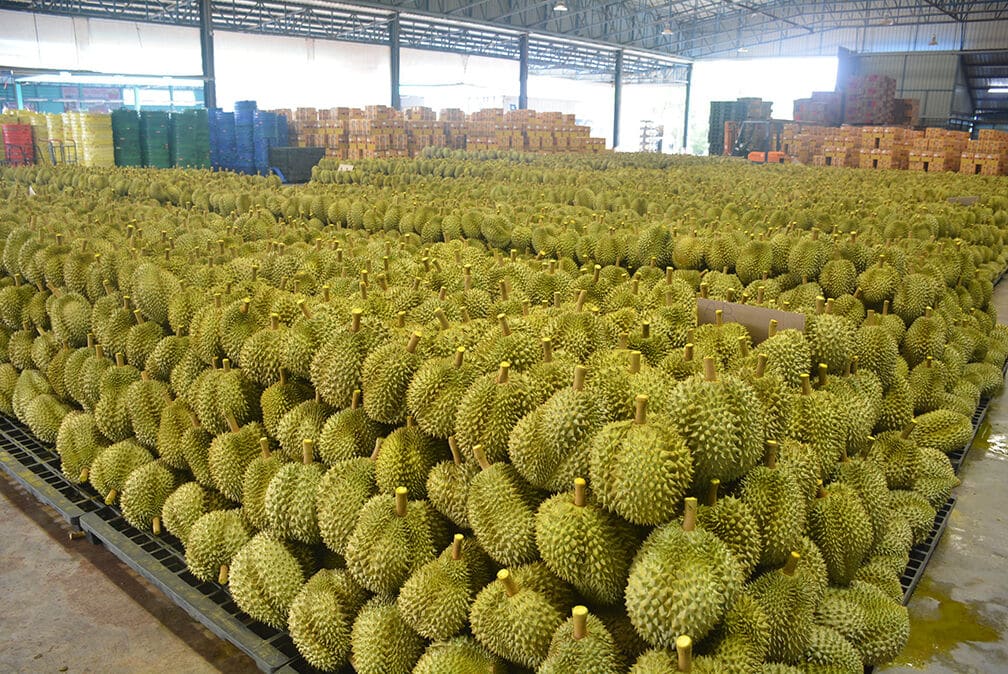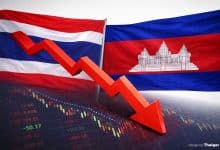Thailand leads in fresh durian exports to China, 121 tonnes by April

Thailand firmly established itself as the top exporter of fresh durians to China, with over 121,398 tonnes shipped in 2024, according to Global Trade Atlas (GTA) data. Additionally, mango exports to South Korea have surged, influenced by favourable trade agreements.
Government spokesperson Chai Wacharong announced that Thailand’s Ministry of Commerce revealed new data showing the country exported fresh durians to China, totalling over 121,398 tonnes, valued at US$717 million (26.3 billion baht). This figure surpasses Vietnam’s exports of 79,186 tonnes, valued at US$369 million, placing Thailand at the forefront of durian exports to China.
Data from the Customs Department indicates that from January to April 2024, Thailand exported more than 225,204 tonnes of fresh durians. This growth trend is expected to continue due to sustained demand and increased production.
Chai expressed confidence that Thailand would maintain its leading position in fresh durian exports to China, citing the continuous demand and proactive efforts by Deputy Prime Minister and Commerce Minister Phumtham Wechayachai, who is aggressively seeking new markets in secondary Chinese cities.
These proactive measures have resulted in Thailand’s return to the top spot in China’s durian market. The average export price of Thai durians has risen to 216 baht per kilogramme, compared to the previous year.
In addition to the impressive durian export statistics, Thailand’s mango exports to South Korea have also seen significant growth.
Fruit shortage
The Republic of Korea temporarily waived import duties on Thai mangoes, coupled with a domestic fruit shortage, leading to a staggering 230% increase in mango exports to South Korea.
The Thai government, through the Ministry of Commerce, continues to push for permanent tariff reductions on Thai mangoes in South Korea. Currently, import duties range between 24% and 30%.
Through the Thailand-Korea Free Trade Agreement (FTA), negotiations for the first round are expected to commence by mid-2024, with the aim of concluding by the end of 2025 or early 2026. Successful negotiations would further benefit Thai exports.
Prime Minister Srettha Thavisin has directed related agencies to adopt a proactive approach, with clear operational strategies, to assess and address any shortcomings.
The goal is to adapt strategies to current situations and promote Thailand as a global hub for agriculture and food.
Chai emphasized that the numbers clearly show Thailand’s significant export lead over the second-ranked country. This proactive and strategic approach aims to bolster Thailand’s position in the global agricultural and food market, ensuring sustained growth and international trade benefits for the country, reported Khaosod.
Latest Thailand News
Follow The Thaiger on Google News:


























